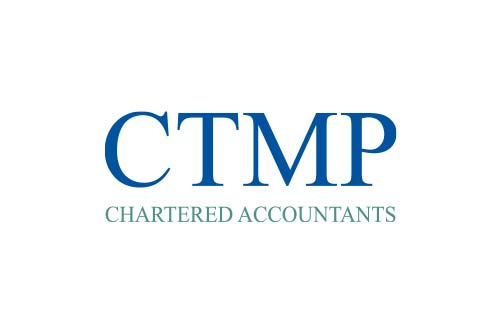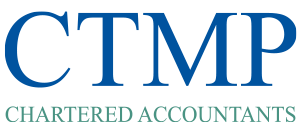
19 Mar Navigating The Evolving Tax Landscape: Changes To ITSA Quarterly And P11D Reporting
The world of tax is never static, and as tax law amendments unfold, businesses and individuals must stay ahead of the curve to ensure compliance and efficiency. One of the areas most affected by recent tax reporting changes is the Income Tax Self-Assessment (ITSA) system and P11D reporting. These updates transform how tax is reported, filed, and managed, demanding attention from businesses, employers, and self-employed individuals.
This blog will explore the changing tax landscape, focusing on the key changes to ITSA Quarterly reporting and P11D reporting.
Experienced tax advisors at CTMP Chartered Accountants can help you understand these changes and how they will impact your tax compliance. We can help you prepare for the future, ensuring smooth operations and effective tax planning.
Call us on 0208 776 0200 or drop us an email at info@ctmp.co.uk today!
Looking for expert tax advice to navigate the complexities of the evolving tax landscape? CTMP Chartered Accountants specialises in providing reliable, tailored tax guidance to businesses, ensuring compliance with ITSA quarterly and P11D reporting changes.
Understanding ITSA Quarterly Reporting
Income Tax Self-Assessment (ITSA) has been a cornerstone of the UK tax reporting for many years. Under the existing system, taxpayers must submit annual returns detailing their income, tax, and expenses. However, recent tax filing changes aim to make tax reporting more frequent, accurate, and aligned with the evolving tax landscape.
The ITSA system is undergoing a significant shift with the introduction of quarterly reporting. This change, part of HMRC’s Making Tax Digital (MTD) initiative, will affect millions of self-employed individuals, businesses, and landlords. Under the new rules, taxpayers will be required to report their income and expenses quarterly instead of submitting one annual self-assessment tax return.
Key Changes To ITSA Quarterly Reporting
- Increased frequency: Instead of filing once a year, individuals and businesses will need to submit their tax information quarterly. This will lead to more regular updates and allow HMRC to track tax obligations in real-time.
- Real-time tax calculations: With quarterly updates, taxpayers will receive more up-to-date tax calculations. This helps taxpayers manage their tax liabilities effectively, reducing the risk of underpayment or surprises when it’s time to file the final return.
- Digital tax reporting: The switch to quarterly reporting also requires businesses to use compatible software to submit their reports to HMRC. This step is part of the broader digitalisation effort to streamline tax reporting, improve accuracy, and reduce human error.
- Impact on cash flow: One of the potential challenges of quarterly reporting is the effect it can have on a business’s cash flow. Smaller businesses, in particular, may struggle with more frequent tax submissions. However, this shift also means they will be better able to plan for their tax liabilities, reducing the risk of large payments at the end of the year.
With these updates, it’s clear that businesses and self-employed individuals will need to adopt more efficient systems for tracking their income and expenses. A tax advisor’s guidance can ensure that you are effectively protecting your wealth and are up to date and aligned with the new regulations.
Changes To P11D Reporting
Employers use P11D forms to report benefits and expenses provided to employees. These include company cars, private medical insurance, and other non-cash benefits. The P11D reporting process has undergone tax filing changes to improve transparency and compliance.
Key Changes To P11D Reporting
- Increased reporting thresholds: Some benefits and expenses that previously required P11D reporting may now be exempt from reporting if they fall below certain thresholds. Reducing the number of reports needed can ease administrative burdens for employers.
- Simplification for small employers: Smaller businesses, particularly those with fewer employees, will benefit from simplified processes for P11D reporting. The aim is to reduce the complexity of tax compliance updates, making it easier for smaller employers to adhere to the rules.
- Changes in reporting deadlines: Employers must be aware of new deadlines for submitting P11D forms. Missing these deadlines could lead to penalties, so businesses must stay on top of these changes.
- Online P11D submissions: Like other tax reporting changes, P11D submissions are increasingly moving online. HMRC has been encouraging employers to file P11D forms electronically, which helps streamline the process and reduces paperwork.
Adapting To Tax Changes: What It Means For Your Business
As tax law changes evolve, businesses and individuals must develop tax efficiency strategies that allow them to adapt seamlessly. Staying ahead of changes to ITSA and P11D reporting will ensure compliance and offer opportunities for better tax planning.
Preparing For Tax Updates
- Keep up with tax regulations: Regularly reviewing updates from HMRC and seeking guidance from a tax advisor will help you stay informed. Tax law amendments can be complex, but a professional can guide you through the nuances of the changes and ensure you’re filing correctly.
- Invest in digital solutions: As HMRC shifts towards digital tax reporting, adopting compatible software is essential for smooth and efficient filing. Not only will this streamline the process, but it will also ensure that your tax returns are accurate, reducing the risk of penalties.
- Implement better record-keeping: With quarterly reporting requirements under ITSA, meticulous record-keeping is crucial. You’ll need to track your income and expenses regularly, so investing in tools to do this efficiently will save time and avoid errors.
- Review your tax planning strategy: The tax compliance and reporting changes allow you to reassess your overall strategy. By working with a tax advisor, you can explore ways to optimise your tax efficiency and reduce your tax liabilities in the short and long term.
Contact us
The Role Of Tax Advisor Guidance
Navigating the evolving tax landscape can be overwhelming, but you don’t have to do it alone. Seeking professional guidance from a tax advisor is one of the best ways to ensure you adapt to tax changes effectively.
Accountants in Croydon can provide valuable insights into the latest tax law changes and help you implement tax planning strategies tailored to your specific situation.
At CTMP Chartered Accountants, we understand the complexities of the evolving tax landscape and the challenges businesses face with ITSA quarterly reporting and P11D reporting changes. Our team of experienced professionals is here to provide expert tax guidance, helping you easily navigate these tax law amendments. Whether you need assistance ensuring tax compliance, optimising tax efficiency strategies, or staying on top of the latest tax regulations, we offer tailored solutions that suit your needs.
Call us on 0208 776 0200 or drop us an email at info@ctmp.co.uk to help us understand your tax-related needs.
Conclusion
Staying informed about tax compliance updates is essential as the tax landscape evolves. Changes to ITSA quarterly reporting and P11D reporting are just the tip of the iceberg, but they represent significant shifts that businesses and individuals must adapt to.
Ultimately, these changes should not be seen as burdens but as opportunities to improve tax efficiency and ensure long-term financial stability.
Contact us today.


